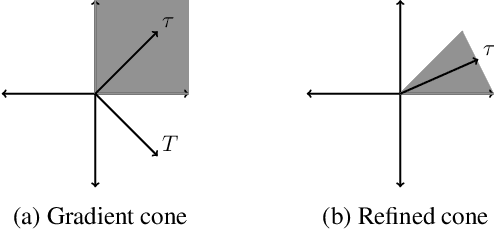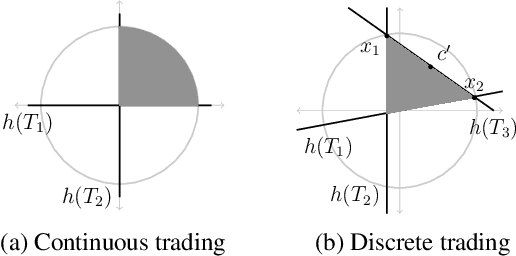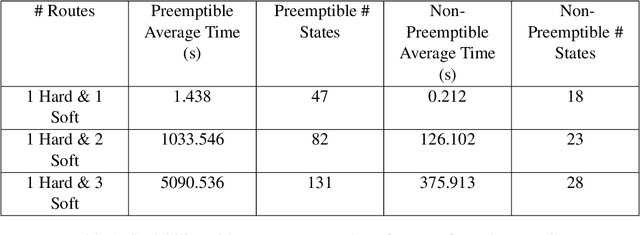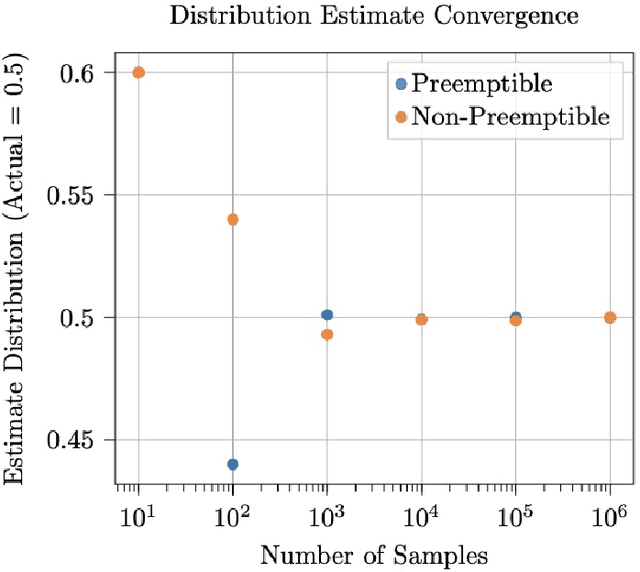Surya Murthy
University of Illinois, Urbana-Champaign
A Reinforcement Learning Approach to Quiet and Safe UAM Traffic Management
Jan 15, 2025Abstract:Urban air mobility (UAM) is a transformative system that operates various small aerial vehicles in urban environments to reshape urban transportation. However, integrating UAM into existing urban environments presents a variety of complex challenges. Recent analyses of UAM's operational constraints highlight aircraft noise and system safety as key hurdles to UAM system implementation. Future UAM air traffic management schemes must ensure that the system is both quiet and safe. We propose a multi-agent reinforcement learning approach to manage UAM traffic, aiming at both vertical separation assurance and noise mitigation. Through extensive training, the reinforcement learning agent learns to balance the two primary objectives by employing altitude adjustments in a multi-layer UAM network. The results reveal the tradeoffs among noise impact, traffic congestion, and separation. Overall, our findings demonstrate the potential of reinforcement learning in mitigating UAM's noise impact while maintaining safe separation using altitude adjustments
* Paper presented at SciTech 2025
Autonomous Negotiation Using Comparison-Based Gradient Estimation
Aug 20, 2024



Abstract:Negotiation is useful for resolving conflicts in multi-agent systems. We explore autonomous negotiation in a setting where two self-interested rational agents sequentially trade items from a finite set of categories. Each agent has a utility function that depends on the amount of items it possesses in each category. The offering agent makes trade offers to improve its utility without knowing the responding agent's utility function, and the responding agent accepts offers that improve its utility. We present a comparison-based algorithm for the offering agent that generates offers through previous acceptance or rejection responses without extensive information sharing. The algorithm estimates the responding agent's gradient by leveraging the rationality assumption and rejected offers to prune the space of potential gradients. After the algorithm makes a finite number of consecutively rejected offers, the responding agent is at a near-optimal state, or the agents' preferences are closely aligned. Additionally, we facilitate negotiations with humans by representing natural language feedback as comparisons that can be integrated into the proposed algorithm. We compare the proposed algorithm against random search baselines in integer and fractional trading scenarios and show that it improves the societal benefit with fewer offers.
Conveying Autonomous Robot Capabilities through Contrasting Behaviour Summaries
Apr 01, 2023Abstract:As advances in artificial intelligence enable increasingly capable learning-based autonomous agents, it becomes more challenging for human observers to efficiently construct a mental model of the agent's behaviour. In order to successfully deploy autonomous agents, humans should not only be able to understand the individual limitations of the agents but also have insight on how they compare against one another. To do so, we need effective methods for generating human interpretable agent behaviour summaries. Single agent behaviour summarization has been tackled in the past through methods that generate explanations for why an agent chose to pick a particular action at a single timestep. However, for complex tasks, a per-action explanation may not be able to convey an agents global strategy. As a result, researchers have looked towards multi-timestep summaries which can better help humans assess an agents overall capability. More recently, multi-step summaries have also been used for generating contrasting examples to evaluate multiple agents. However, past approaches have largely relied on unstructured search methods to generate summaries and require agents to have a discrete action space. In this paper we present an adaptive search method for efficiently generating contrasting behaviour summaries with support for continuous state and action spaces. We perform a user study to evaluate the effectiveness of the summaries for helping humans discern the superior autonomous agent for a given task. Our results indicate that adaptive search can efficiently identify informative contrasting scenarios that enable humans to accurately select the better performing agent with a limited observation time budget.
Scheduling for Urban Air Mobility using Safe Learning
Sep 28, 2022



Abstract:This work considers the scheduling problem for Urban Air Mobility (UAM) vehicles travelling between origin-destination pairs with both hard and soft trip deadlines. Each route is described by a discrete probability distribution over trip completion times (or delay) and over inter-arrival times of requests (or demand) for the route along with a fixed hard or soft deadline. Soft deadlines carry a cost that is incurred when the deadline is missed. An online, safe scheduler is developed that ensures that hard deadlines are never missed, and that average cost of missing soft deadlines is minimized. The system is modelled as a Markov Decision Process (MDP) and safe model-based learning is used to find the probabilistic distributions over route delays and demand. Monte Carlo Tree Search (MCTS) Earliest Deadline First (EDF) is used to safely explore the learned models in an online fashion and develop a near-optimal non-preemptive scheduling policy. These results are compared with Value Iteration (VI) and MCTS (Random) scheduling solutions.
* In Proceedings FMAS2022 ASYDE2022, arXiv:2209.13181
 Add to Chrome
Add to Chrome Add to Firefox
Add to Firefox Add to Edge
Add to Edge